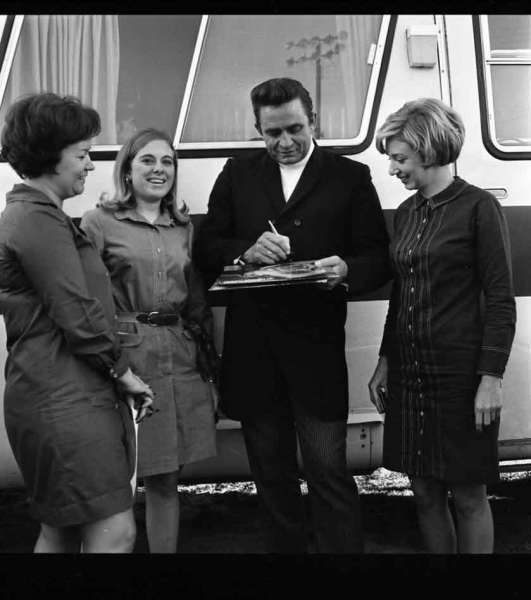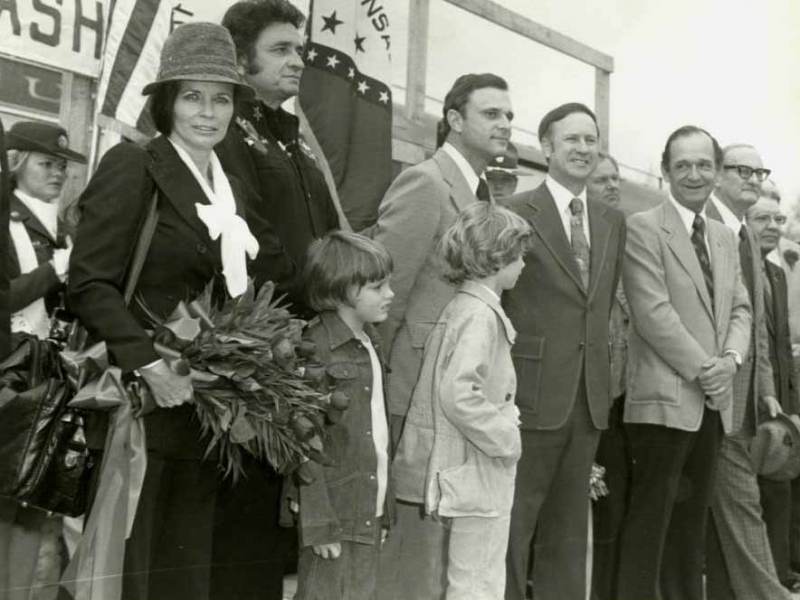The 1970s in America was known as the “Me Decade.” As the Vietnam War and tumult of the 1960s wound down, many Americans turned inward. Much of the 1960s lived on in the continuing activist movements, drug culture, liberated fashions and sexuality, and experimental music. Many, including what Nixon called the “Silent Majority” turned more conservative. Others embraced religion more closely in what historians have called the “Third Great Awakening.” By the mid-1970s, there seemed to have emerged a “New Johnny Cash,” who appeared to be free of drugs, happily married, and with a stronger religious faith.
Cash would see declining record sales over the course of the 1970s. He tried to remain relevant amid changing musical styles, though he had only one number one hit song in the 1970s, "One Piece at a Time." However, Cash remained a big draw in concert, especially in his home state.
In March 1976, cash visited Cleveland County, where he was born. The trip, he said, was "one of the biggest kicks of my whole life and career." Cash rode through the street Rison with his father Ray and wife June Carter. Later, Cash appeared on stage with June, his young son John Carter, Gov. David Pryor, Rep. Paul Hammerschmidt, and Rep. Ray Thornton. Cash played a concert at the Rison football field. A marker was also dedicated to Cash in Kingsland. The marker is still there.
Career Lows
The 1980s were not a good time for Cash. In 1980, he fired his longtime bass player Marshall Grant. He continued to struggle with drugs and other health problems. He was dropped from his label Columbia Records in 1986 due to poor sales. However, Cash found some success with the supergroup the Highwaymen. And as always, he still drew large crowds, as in 1982 in Fordyce, where Cash helped raise funds for the Cotton Belt Festival parade.
At the nadir of his career, Cash kept his sense of humor. In August 1983, Big Brothers and Big Sisters of Little Rock hosted a roast of Cash who was ribbed for not only singing but also "talking off-key" on his records. June Carter Cash attended, as did former governor Frank White. On a more serious note, one of the roasters revered Cash as a man who had "been down as many times as he's been up. A man who carries his heart in his music...Here in Arkansas, you speak our language."


